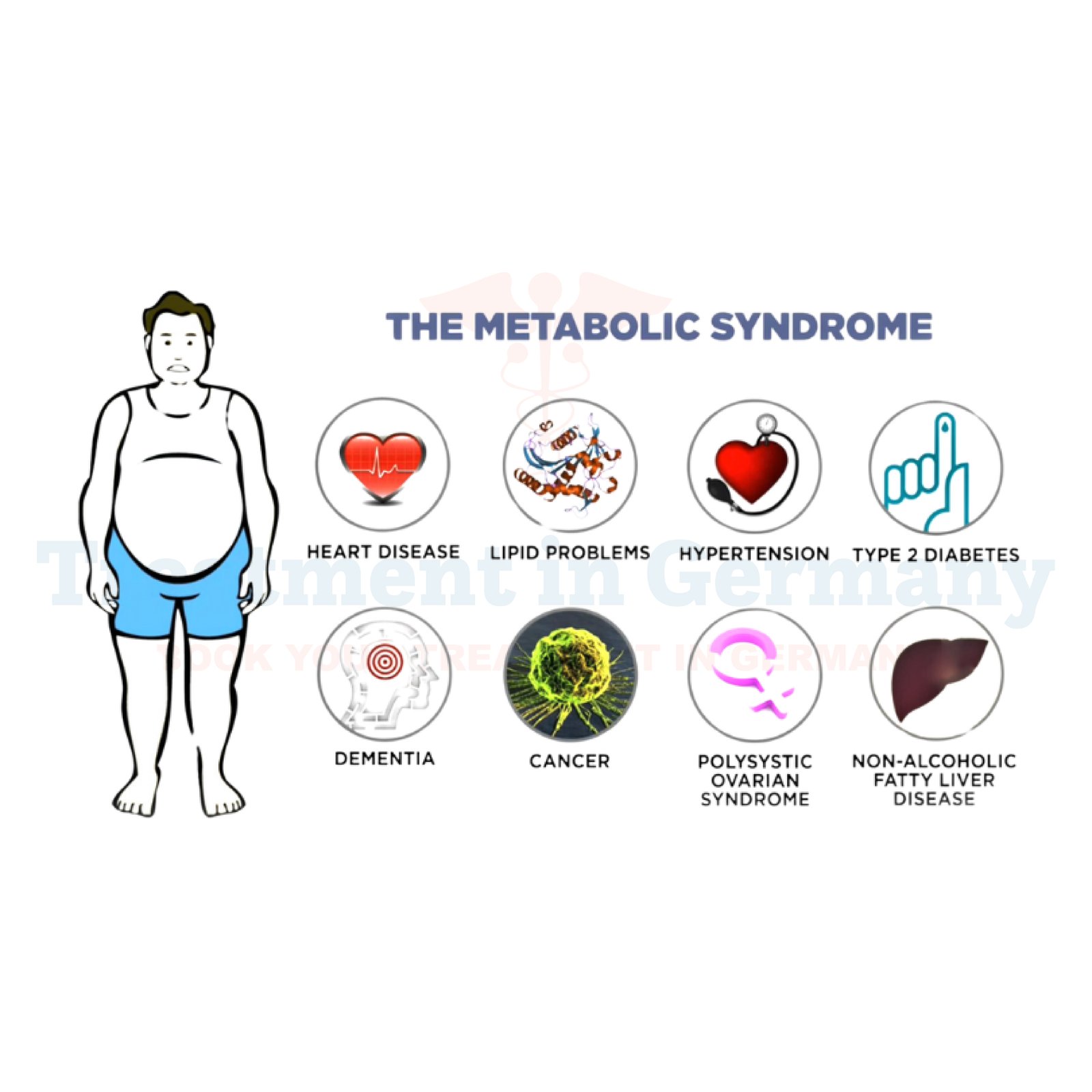What is Metabolic Syndrome:
Metabolic syndrome is a cluster of conditions that occur together, increasing your risk of heart disease, stroke, and type 2 diabetes.
These conditions include high blood pressure, high blood sugar levels, excess body fat around the waist, and abnormal cholesterol levels.
While the exact cause of metabolic syndrome is not fully understood, factors such as obesity, lack of physical activity, and genetics play significant roles.
Side Effects of Metabolic Syndrome:
Metabolic syndrome can have serious consequences if left untreated. It significantly raises your risk of developing cardiovascular diseases, such as heart attack and stroke.
Additionally, it increases the likelihood of developing type 2 diabetes, which can lead to complications such as nerve damage, kidney damage, and vision problems. Moreover, metabolic syndrome is associated with non-alcoholic fatty liver disease and polycystic ovary syndrome in women.
How is Metabolic Syndrome Diagnosed?
Diagnosing Metabolic Syndrome typically involves a series of tests to assess various risk factors. Your doctor may measure your blood pressure, blood sugar levels, and waist circumference.
They may also order blood tests to check your cholesterol levels, including HDL (good) cholesterol, LDL (bad) cholesterol, and triglycerides. If you meet specific criteria for each of these risk factors, you may be diagnosed with metabolic syndrome.
Potential Treatments of Metabolic Syndrome:
Fortunately, metabolic syndrome can be managed and, in many cases, reversed through lifestyle changes and, if necessary, medication. Here are some potential treatments:
1. Healthy Diet: Adopting a balanced diet rich in fruits, vegetables, whole grains, and lean proteins can help improve your cholesterol levels, blood sugar control, and weight management.
2. Regular Exercise: Engaging in regular physical activity, such as brisk walking, cycling, or swimming, can help lower blood pressure, improve insulin sensitivity, and promote weight loss.
3. Weight Loss: Losing even a modest amount of weight can have significant benefits for managing metabolic syndrome. Your doctor can help you develop a personalized weight loss plan that includes dietary changes, exercise, and behavior modification strategies.
4. Medications: In some cases, medications may be prescribed to help control specific risk factors associated with metabolic syndrome, such as high blood pressure, high cholesterol, or high blood sugar levels. These may include antihypertensive drugs, statins, or insulin-sensitizing medications.
5. Regular Monitoring: It's essential to regularly monitor your blood pressure, blood sugar levels, and cholesterol levels to track your progress and adjust your treatment plan as needed.
6. Lifestyle Changes: Quitting smoking, limiting alcohol consumption, and managing stress are also crucial components of managing metabolic syndrome and reducing your risk of complications.
👉 Contact us for further information and receive acomplimentary consultation.


.webp)
 (1).webp)

.webp)
 (1).webp)


.webp)
 (1).webp)

.webp)
 (1).webp)
